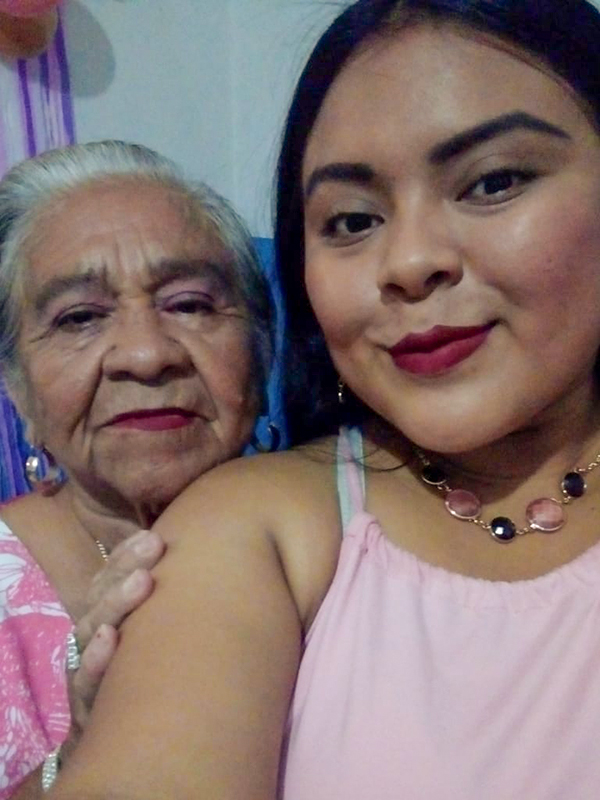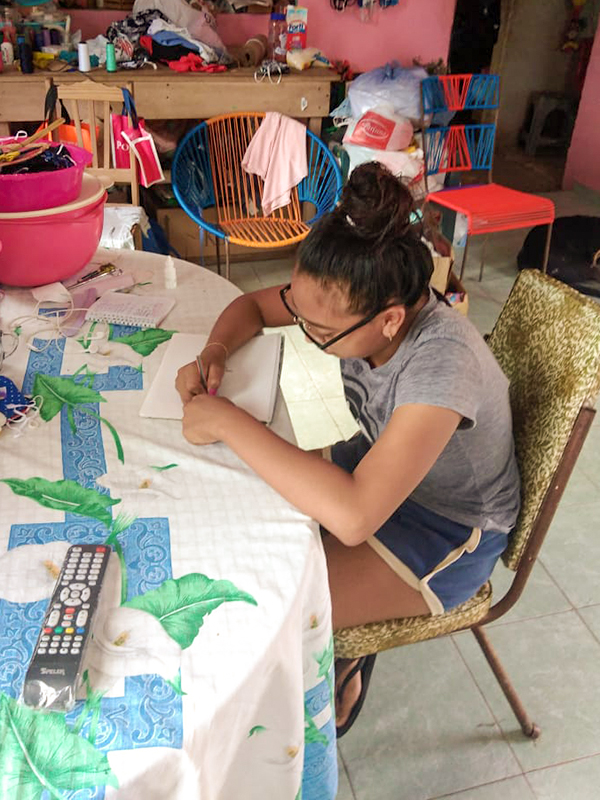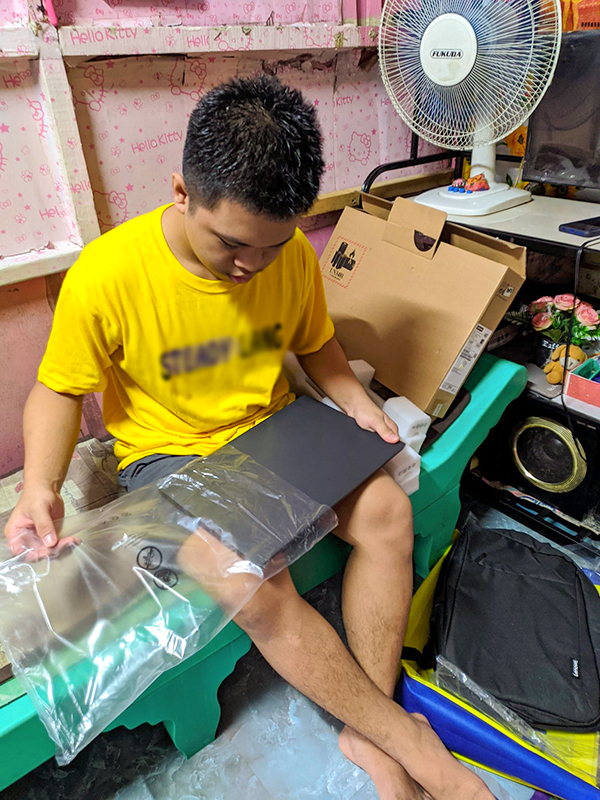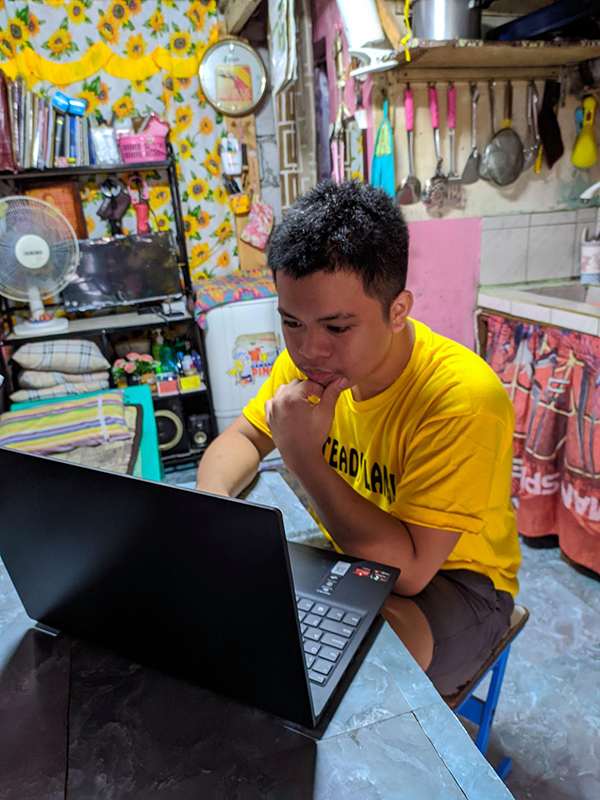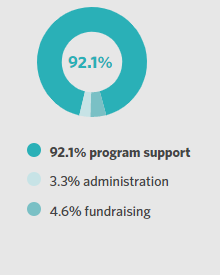Students adjust to distance learning
As challenging as COVID-19 made life across the globe, it would have been worse if not for the ability many had to work and study from home because of digital technology. But for nearly half the people on the planet, that ability doesn’t exist.
According to UNESCO, while 87 percent of households in economically developed nations enjoy internet access, only 47 percent of homes in developing nations have it. In the poorest countries in the world, the percentage falls to 19.
Communication during the pandemic has been challenging, especially for students now required to do distance learning. Unbound International Program Director for Latin America Melissa Velazquez put it in perspective.
"We estimate that just over 50 percent of sponsored families and less than 25 percent of elders have regular access to a smartphone, and many of those include some apps but no internet browsers, or intermittent internet access," Velazquez said. "Many programs are sharing that digital learning is a big challenge and some have done some more in-depth surveys to better understand."
Checking in with families
Those surveys are part of a series of comprehensive evaluations with families in the Unbound program. The goal is to learn how they are coping during the pandemic and what adjustments need to be made as it continues. While the evaluations were not limited to educational concerns, education was a major emphasis.
“Education is a very big component of our program and, with the pandemic, school systems saw drastic changes almost immediately,” Unbound Evaluation Specialist Nimisha Poudyal said.
As the seriousness of the threat posed by COVID-19 became known in the spring of 2020, schools closed throughout the world. In communities where Unbound works, limited or no internet access combined with the chance that students wouldn’t return to school once they leave put the education of children in jeopardy.
The good news is that families in Unbound programs throughout the world demonstrate a generally strong commitment to keeping their children engaged in formal education. The bad news is that poor internet connectivity and lack of proper equipment make that task difficult.
"Again, this should not come as a surprise that the shift from in-person to distance or virtual learning became a recurring theme for sponsored members in different programs, especially when it came to access to different devices and accessories they would need to make that transition," Poudyal said.
Left: When her campus in Mexico closed because of COVID-19, sponsored college student Maria moved in with her grandmother, also named Maria. Though she’d never done distance learning before, Maria now takes all her courses online, studying in her grandmother’s kitchen.
Right: Sponsored student Naydeline studies in her home in Mexico, where she lives with her mother and two older brothers. The home’s spotty internet coverage, along with the limitations of studying with a cell phone, make distance learning difficult for her.
Making the best of a bad situation
Students are adapting to the situation as best they can. In Mexico, sponsored college student Maria moved in with her grandmother when her campus closed. The home had never had internet access before, nor did Maria have experience with online learning. Now, working out of her grandmother's kitchen, she's made the adjustment.
"My goal is to finish my university with good grades, and this is something I never lose sight of; I do not forget it," she said. "Even with the current situation, I know that nothing comes easy, and I must work hard for this."
Internet access isn't the only impediment families are facing in online learning. The lack of adequate equipment is another challenge. In Colombia, single mother Lydia lets her three oldest children use her cell phone to study and communicate with their teachers. It's the only digital device the family owns. Lydia knows the phone isn't adequate for all their needs.
"My children suffer because they don't have anything to study with," she said. "We often stay up until 2 or 3 in the morning doing the tasks they have to do."
Similarly, sponsored youth Naydeline in Mexico purchases 2 hours of data every day so she can study with her cell phone. Taking online classes with the phone is difficult under the best of circumstances, but the spotty coverage where she lives makes it worse. Still, she has no other options.
"We are having economic problems, but we are looking for the way to move forward," Naydeline said. "I have to do an admission test to be able to enter in a public university, but it's been delayed due to COVID-19."
While students in local Unbound programs everywhere are facing challenges with digital learning, some are able to acquire what they need to keep up with their studies. Jensen, who was in 12th grade when the pandemic closed his school in the Philippines, found himself restricted to home with no internet access and no computer. His local Unbound parent group offered to help.
"When we heard from our PVL (Parent Volunteer Leader) about the possibility that we can request financial assistance from Unbound in buying a laptop for our online class, we tried that opportunity since we really need to have it for our education," Jensen said. "Our PVL ... gathered the information needed and forwarded it to our project staff. Then, after few days, they told us to look for a laptop unit that we can buy in a store near to us."
Jensen found a laptop that fit both his needs and his budget. He then arranged with a neighbor to pay a portion of the neighbor's monthly Wi-Fi fee in exchange for access. The arrangement is working well so far.
Left: In his home in the Philippines, Jensen unwraps the new laptop computer he purchased with the help of his local Unbound parent volunteer group. The group committed to helping sponsored students like Jensen acquire the equipment they’d need for online study.
Right: With his new computer up and running, Jensen dives into his schoolwork at home. Since the pandemic, this has been the reality for students all over the world.
The new normal
Flexibility is a characteristic of families in the Unbound program and they're accustomed to adapting to situations over which they have little control. Still, nothing on the scale of the pandemic has happened before and the way ahead is far from clear. Recovery won't be easy and nobody can say exactly what the new normal will look like.
"When this crisis is over, we will not start again from where we were when it started, but we will start again from a place further back," International Evaluations Manager Becky Findley said. "And the crisis isn't over yet. We can't begin a full-on recovery mode. Instead, we've moved from that initial shock of shutdown and food insecurity to a longer-term limbo of adaptation to this new way of life."
Whatever else can or can't be predicted, it's certain that that new way of life will be reliant to some extent on digital technology. Whatever it takes, Unbound will be there, helping families acquire what they need to lift themselves up and make their lives better.


